'I was a chronic alcoholic trying to hold on to a dream'
Jonathan Harding talks to ex-trainer John Gillen about his battle with addiction
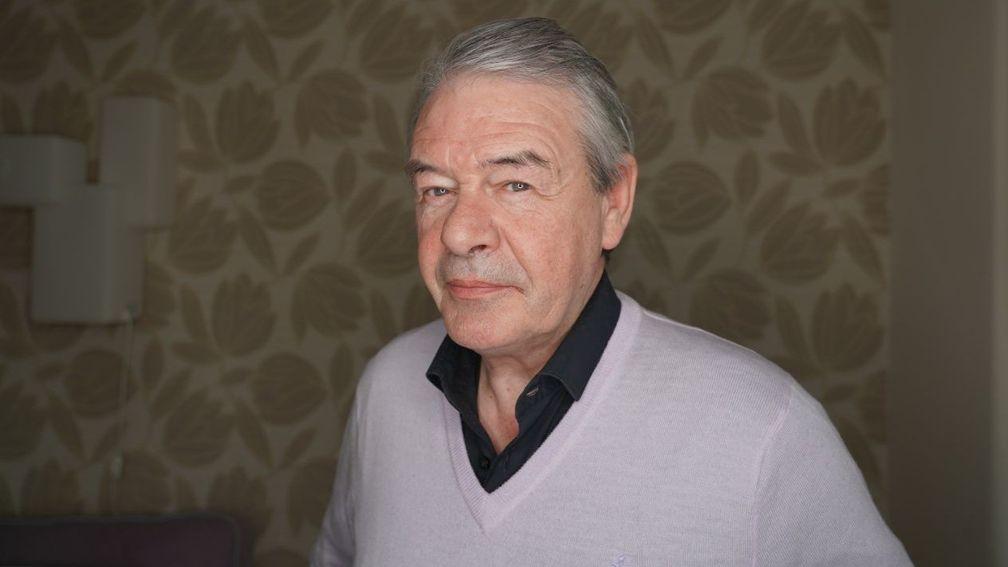
After losing everything, John Gillen made a life-saving decision.
The former trainer spent decades struggling with chronic alcoholism and problem gambling. His battle with addiction cost him his dream career and his family, but he chose to fight back and accepted help.
Gillen is one of the lucky ones. He has recovered from his illness and built a new life dedicated to helping other sufferers do the same.
The 63-year-old admits his problems began as a teenager when he was starting out in racing, and he is determined to raise awareness around the potential relationship between the sport and alcoholism.
"Every time I picked up a drink I lost something," says Gillen, who is the director of Rehab Clinics Group, a group of residential facilities.
"I ended up losing every horse, every owner, and then my wife and kids. Only by reaching rock bottom do you start to understand the depths of despair you've caused yourself and others.
"I lost everything and was on the streets. You can stay like that for years before asking for help. Either a miracle happens or you die."
A long road had led him to this precarious point and it began in Scotland. Gillen was preparing to leave school in 1971 and, like many 15-year-olds at the time, had not decided what he wanted to do.
He was light for his age, and his father, a bookmaker with an interest in racing, suggested he could become an apprentice jockey. He wrote to a number of British trainers and, despite Gillen knowing nothing about horses, he was accepted by Lambourn trainer Peter Nelson.
"I remember my first day," remembers Gillen. "The accommodation was pretty sparse. The head lad at the time kicked open the door at 6am and cracked a whip. You would never get away with it now but don't get me wrong, those were the best days of my life."
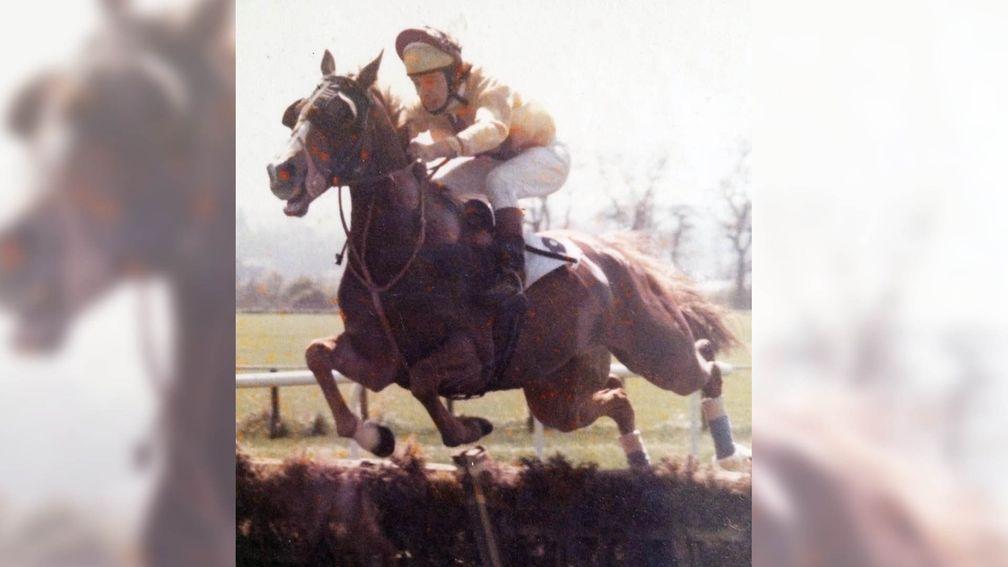
The issues began when he started frequenting the pub, following the lead of the older members of stable staff, who often went in the afternoon. With no parental guidance, this soon became a routine.
"I started with half a shandy but it never looked right in my hand when the older guys had a pint," he says. "Soon I would drink two or three pints every other night, which was an awful lot of booze.
"The lifestyle encouraged that type of behaviour and nobody saw anything wrong with it. It was the standard for a lot of young people and every morning you just made sure you were ready to work.
"The road into alcoholism starts very subtly and is rarely noticeable in the early stages. It's not like other drugs that have an immediate impact. You can develop a dependency over time and it can go undetected for years because it's socially acceptable to drink."
Gillen describes the racing environment as a potential breeding ground for problem drinking, and stresses this destructive behaviour does not just appear in later life, it begins in adolescence.
"Alcoholism is a serious industry hazard," adds Gillen. "Life is fast in racing and professionals such as trainers and jockeys don't touch the ground. People are often introduced to alcohol at an early age and they grow up with the added fuel to the fire, which is stress.
"Alcoholism and drugs have always been in the sport and my friends say it's worse than ever. When you're young you think the world's your oyster and there's no opposition to those types of behaviour."
After a year, the early consequences of Gillen's drinking came to light and he confesses he reached a point where life would not have seemed normal without regularly consuming alcohol.
"I was well on the road to becoming an addict," says Gillen. "It became an everyday thing and that set me up for the rest of my life. I used to suffer from anxiety because of the booze.
"I could be riding on the Downs and all of a sudden it would hit me. People thought it was due to the horse I was riding but that wasn't the case. Alcohol relieves anxiety and I viewed drink as a medicine."
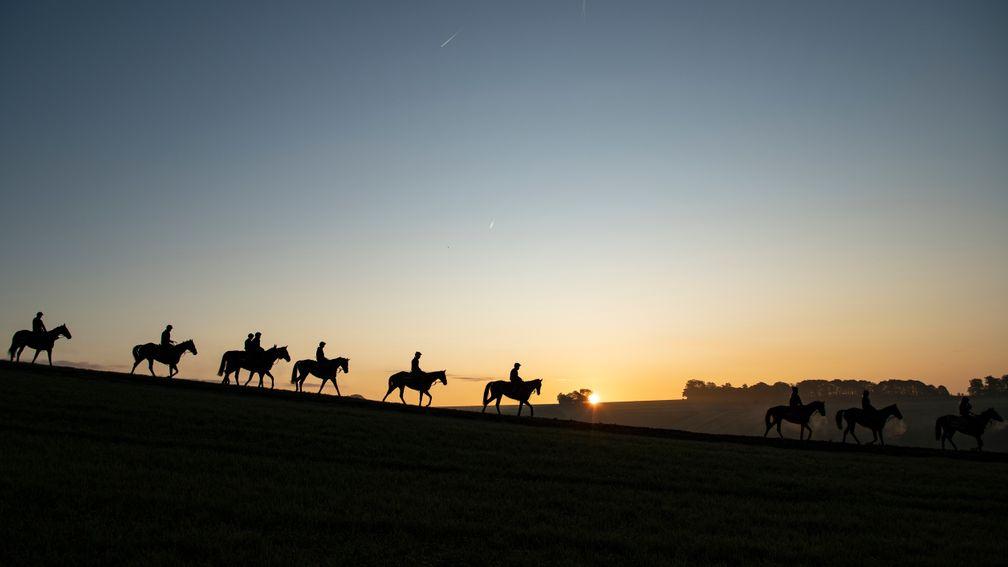
After putting on weight, Gillen took a break from racing and returned to Scotland but soon began riding out at the weekends. When John Wilson started training he became his head lad in 1979 and after several years was encouraged to set up on his own.
"I applied for a professional licence and went to the Jockey Club in London," says Gillen. "By this time I was an alcoholic and as my appointment was in the afternoon I had what we call a tuner, a couple of drinks to remove the effects of alcohol withdrawal.
"I spent a couple of hours in a pub, a bit of Dutch courage, and I needed it. If I didn't have enough drink I would start to shake like a leaf. I went before the Jockey Club panel, all lords, majors and captains, to try to get my licence and the effects were pretty visible.
"They refused my licence on minor points but there was no way I was leaving without one. The drink was starting to wear off and I was in a bad mood. I promised to come back in an hour to straighten things out. I stormed out and went for four or five brandies.
"When I came back the secretary was shocked. They had another look at my application and I went back to Scotland with a licence."
Gillen had a small yard with a handful of horses. He had been supported by several owners but his new profession only served to exacerbate his alcoholism and his situation became desperate.
"There is no more perfect lifestyle for an alcoholic than a trainer," he says. "Drinks are everywhere. Every time you go to the races, you end up having a drink to either celebrate or console.
"The owners came down every other day to see the horses and they would also bring a bottle of scotch. They'd spend five minutes with the horse before coming in the house for a boozing session.
"The drink really started to get hold of me then and I couldn't go out the door each morning without drinking at least a quarter of a bottle of vodka. This was around 1989 and I was the new Scottish trainer on the block with 25 horses in training but I would be visibly drunk in the parade ring. The stewards noticed and the gossip started.
"One minute I'd be like Champagne Charlie at Cheltenham and the next I'd be asking people on the street for money to buy a drink. The owners took their horses away and the people who worked for me started to leave. I was a chronic alcoholic trying to hold on to a dream. It all seemed to happen overnight but it took decades to reach the point where I had to abandon the whole project."
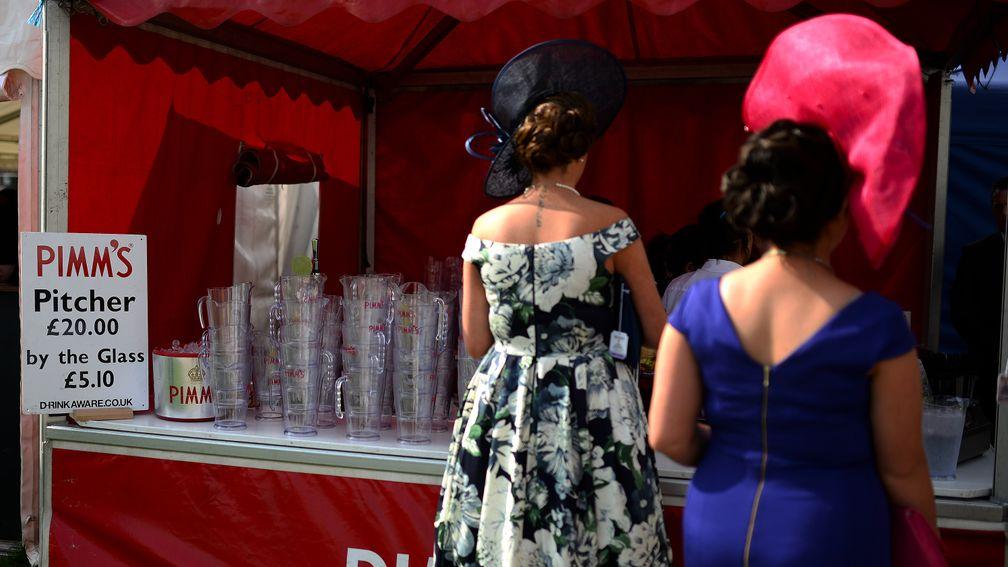
Gillen was having to fight a war on two fronts. His severe dependency on alcohol exacerbated his addiction to gambling and he began betting substantial amounts of money on his runners.
"As I got older I started to gamble through desperation and take more risks," says Gillen. "It began as a novelty but soon I was gambling to win a lot of money and it floored me. I used to back my own horses if I thought they'd come close and, as the saying goes, I would literally put my mortgage on it. I was lucky a couple of times but most of the time I wasn't and that accelerated the drinking."
It was not that Gillen did not want to recognise he had a problem – he was unable to. It took until 2002, when he had lost everything and was homeless, for him to take his first steps towards recovery.
"Alcoholism is like dementia," says Gillen. "The function of the brain changes. If you tell your father he is getting forgetful, he'd say there's nothing wrong with him. It's the same with alcoholism.
"It affects the organ you need to compute what people are telling you. The world calls it denial but an alcoholic often cannot process the severity of the situation. You convince yourself you're okay.
"Alcoholics are dying everyday. They were in the same condition I was in when I was on the streets. By the grace of God I had a self-realisation and ended up on the psychiatric ward of my local hospital. My family put me there to be dried out and fed. I was a similar weight to when I was 15 and was lucky to be six stone."
After spending three weeks in hospital, Gillen was supported by his ex-wife for a few months and engaged with outreach services. His approach to overcoming alcoholism was simply to understand it.
"One of the reasons I was willing to go to hospital was because I thought that one of the guys in the white coats would be able to explain what I'd done to myself and my brain function," says Gillen.
"I had a desire to learn and started to educate myself. For the first time I read something other than form books at my local library. I then started going to the Mitchell Library in Glasgow and I was like the library cat, I was the first one in and the last one out each day.
"Time began to pass and I still wasn't picking up a drink but there were times still when the darkness of the disease would descend and I would once again feel panic and anxiety. Luckily I had taught myself how to breathe properly and remain calm in that situation."
Six months later, Gillen was offered a job with Barry Hills but it only lasted five weeks. While he did not drink, he felt returning to racing, a sport he still loved, was too high-risk and returned to Scotland.
His life then took a U-turn. He began volunteering and returned to the hospital that treated him every week to meet new patients – he was living proof there is always light at the end of the tunnel.
Gillen took various roles in healthcare. By 2005, he had opened his own rehab clinic and seven years later pioneered a new intravenous therapy that acts as a replacement for harmful substances.
He turned his personal life around too and is happily married. His relationship with his ex-wife has also improved, and last June he became a grandfather. In short, he forged an entirely new path.
Gillen does not take this for granted. He has been sober since 2002 but is acutely aware of the need to stay on the straight and narrow.
"I live with the knowledge I have a disease I have to manage on a daily basis," he says. "It has to be treated like any other illness.
"While I was suffering with addiction there was still a part of me that was unaffected by it. I had to go on an inward journey to rediscover my authentic self and that's the way I walk in the world today. I'm in a recovered state but if I don't manage my disease, I can relapse."
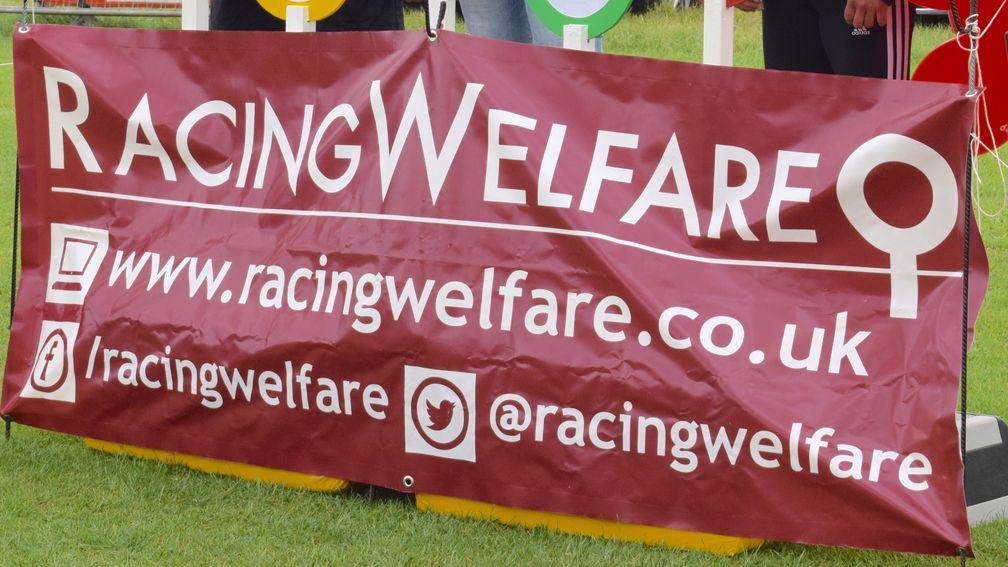
Gillen hopes his story can be a cautionary one. He has launched an around alcoholism and racing, and argues more must still be done to protect young people within the sport.
"The point of this campaign is to save lives," says Gillen. "Education is key and I would like to talk to the National Trainers Federation (NTF) as trainers are at the forefront. It's their responsibility to be guardians and monitor the well-being of their young staff, who have often left home at a formative stage of their lives.
"A number of organisations, such as Racing Welfare, are doing valiant work but sometimes it's not enough. Counselling can help at first but if somebody is on the verge of alcoholism they need a stronger programme based around stress relief. I would like to see trainers and senior staff members play an active role. They need to recognise when somebody has a problem and offer them real help.
"The stigma around addiction will always be there but it's a disease that must be treated. It's closely tied to an individual's mental health and if it goes untreated it can often have fatal consequences. We need people in racing to feel comfortable addressing these types of issues and we need more voices to break the ice surrounding these issues and voice their concerns around mental health and alcohol."
Gillen has done just that. After losing everything through addiction, he took the decision to embrace treatment before it was too late, choosing not only to survive but to build a new life from scratch.
By sharing his story, he hopes to encourage others to do the same.
Confidential support and counselling helplines are available 24 hours a day via the Professional Jockeys Association (07780 008877) and Racing Welfare (0800 6300 443)
Published on inSeries
Last updated
- We believed Dancing Brave could fly - and then he took off to prove it
- 'Don't wind up bookmakers - you might feel clever but your accounts won't last'
- 'There wouldn't be a day I don't think about those boys and their families'
- 'You want a bit of noise, a bit of life - and you have to be fair to punters'
- 'I take flak and it frustrates me - but I'm not going to wreck another horse'
- We believed Dancing Brave could fly - and then he took off to prove it
- 'Don't wind up bookmakers - you might feel clever but your accounts won't last'
- 'There wouldn't be a day I don't think about those boys and their families'
- 'You want a bit of noise, a bit of life - and you have to be fair to punters'
- 'I take flak and it frustrates me - but I'm not going to wreck another horse'